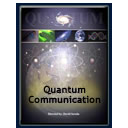Natural Genius
Can moths hear? How do sound waves move through water? How do foxes detect mice beneath the surface of snow? These are just a few of the questions posed as the filmmakers study the many ways the aural senses are used as a mode of communication throughout the animal kingdom.
First focusing on caterpillars, creatures that are largely assumed to be incapable of hearing, we learn that they do, in fact, respond to the vibrations of spoken sound. They react as they would to the threat of a predator by becoming agitated and lashing out with their prickly, poisonous hairs. Although a somewhat comical and not very intimidating display, the evidence that they are responsive to aural stimuli makes a case for their ability to accept acoustic information after all.
Further supporting this is the fact that moths (which are really just adult caterpillars) also display evidence of receiving and responding to the sound of bats; as their predators hunt they emit a whistling sound which the moths respond to by dropping out of the air to avoid being eaten.
The audience is then taken under the sea to learn about marine mammals such as dolphins and whales, and their use of low-frequency sound waves to communicate through water over distances of up to 500 miles. Back on land we learn about "audio pavilions", otherwise known as external ears, and the way their varying shapes impact the precision with which sound may be received.
We then take to the air with a flock of cranes to better understand their constant shouting, a practice that serves as both a mode of communication as well as a navigational tool during migration. Their use of acoustic markers is similar to that used by humans in coordinating fleets of aircraft.
Further examining the role of aural emission and reception in the lives of cicadas, tarantulas, toads, birds, and even tribal humans, Natural Genius reveals the complex systems of communication that exist across species.




Huh, you know I was a little turned off by the cover. It reminds me of a kid's nature show but it is not. It was actually really cool
It would seem that we know quite enough about the natural world now to know that we desperately need to transcend it.
("Fan-freaking-tastic") Have I been asleep, in a dream? Have I somehow traveled to a strange land, where there are people who want to learn a scientific view of nature, are nurtured, and guided with such sound reasoned observation, and commentary. Is it possible there are people interested in a presentation, free of the insipid emotional tripe of so many nature films catering to the dimwitted, and the superstitious? Is it possible that there are actually people who are interested in a bridge between the world of the amateur naturalists, the layperson, and the scientist? This documentary was one of the finest presentations of critical elements of biology for anyone wanting to understand the realities of the natural, world, that i've ever seen. Jacques Cousteau, David Attenborough, and a few others take a more scientific approach that is much appreciated, but even they don't dare give the Latin names of species very often, for fear of loosing the attention span of dimwits who run at the first sign of intellectual challenge. Congratulations, and thank you for an excellent series of images, concepts, and presentation, truly outstanding.
Interesting and ingenious ways. If only they weren't used in order to con, manipulate and finally kill.
Is the ultimate goal of all species to procreate and spred into infinity crashing around anything else on their way?
Uh, yes. That's what life is.